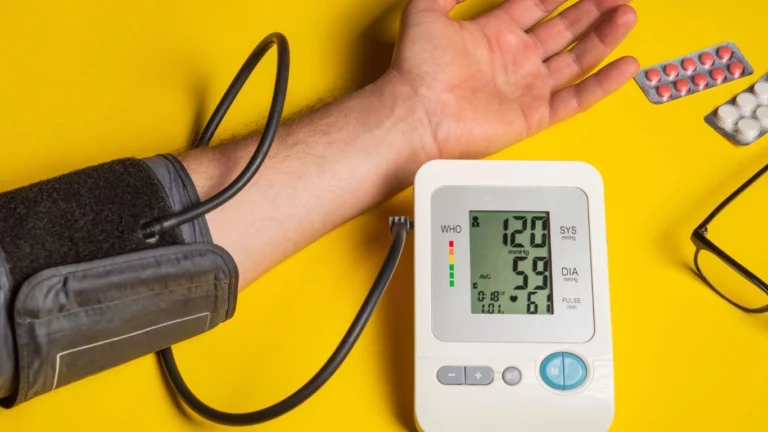Unlocking the Connection Between GERD and Sleep Apnea
Discover the intricate relationship between GERD and Sleep Apnea, and how managing one can improve the other. Learn effective strategies and prevention tips.
GERD (Gastroesophageal Reflux Disease) and Sleep Apnea are two prevalent medical conditions that can significantly impact one’s health and well-being. In this article, we will delve into the details of both conditions, their connection, and how managing GERD can improve sleep apnea and vice versa.
Introduction
GERD, a chronic digestive disorder, occurs when stomach acid flows back into the esophagus, causing irritation and discomfort. Sleep apnea, on the other hand, is a sleep disorder characterized by pauses in breathing during sleep. These conditions may seem unrelated, but there’s a growing body of evidence suggesting a strong link between them.
Understanding GERD
GERD is primarily triggered by a weakened lower esophageal sphincter (LES), allowing stomach acid to escape into the esophagus. Symptoms often include heartburn, regurgitation, chest pain, and difficulty swallowing. Diagnosis involves a physical examination, endoscopy, or other specialized tests. Common risk factors include obesity, smoking, and certain foods.
Managing GERD involves lifestyle changes like dietary adjustments and weight loss, as well as medications like proton pump inhibitors (PPIs) and antacids. In severe cases, surgical options like fundoplication may be considered.
Understanding Sleep Apnea
Sleep apnea is categorized into obstructive, central, and mixed types. Obstructive sleep apnea (OSA) is the most common, caused by the relaxation of throat muscles during sleep. Symptoms include loud snoring, choking, and daytime fatigue. Diagnosis often requires a sleep study (polysomnography).
Treatment options for sleep apnea vary. Lifestyle modifications such as weight loss and positional therapy can be effective. Continuous Positive Airway Pressure (CPAP) therapy is the most common medical treatment, using a machine to deliver a steady stream of air pressure to keep airways open. In severe cases, surgery may be considered.

The Link Between GERD and Sleep Apnea
The connection between GERD and sleep apnea lies in the impact of acid reflux on sleep quality. Acid reflux episodes can disrupt sleep, leading to nighttime awakenings and shallower sleep patterns. Furthermore, obesity, a common risk factor for both conditions, can exacerbate their severity.
How GERD Can Contribute to Sleep Apnea
GERD can exacerbate sleep apnea by causing inflammation and irritation in the upper airway, making it more prone to collapse during sleep. Additionally, coughing and choking episodes resulting from GERD can trigger apnea events, further disrupting sleep.
Research has shown that treating GERD can lead to improvements in sleep apnea symptoms. By reducing acid reflux, individuals may experience fewer nighttime awakenings and better sleep quality.
The Role of Acid Reflux in Sleep Disruption
Acid reflux episodes can lead to discomfort, irritation, and even pain in the chest and throat, making it difficult for individuals to fall asleep or stay asleep. This discomfort can cause frequent awakenings throughout the night, leading to fragmented and poor-quality sleep.
Moreover, the regurgitation of stomach acid into the esophagus can trigger a reflex that narrows the airways, contributing to the occurrence of sleep apnea events. Individuals with GERD may unknowingly experience sleep apnea episodes due to these combined factors.

Managing GERD to Improve Sleep Apnea
Addressing GERD is a crucial step in improving sleep apnea symptoms. By managing GERD effectively, individuals can experience better sleep quality and potentially reduce the severity of their sleep apnea. Here are some strategies to consider:
Lifestyle Changes for GERD Relief
- Dietary Modifications: Avoid trigger foods and beverages that can exacerbate GERD symptoms, such as spicy foods, citrus, caffeine, and alcohol. Opt for a diet rich in fruits, vegetables, and whole grains.
- Smoking Cessation: Smoking weakens the LES and can worsen GERD symptoms. Quitting smoking can lead to significant improvements in both GERD and sleep apnea.
- Weight Management: Obesity is a major risk factor for both conditions. Losing weight through a balanced diet and regular exercise can alleviate GERD symptoms and reduce the severity of sleep apnea.
Medications for GERD
- Proton Pump Inhibitors (PPIs): PPIs reduce stomach acid production and can provide significant relief from GERD symptoms. These medications should be taken under the guidance of a healthcare professional.
- Antacids: Over-the-counter antacids can help neutralize stomach acid and provide short-term relief from heartburn and acid reflux.
- H2 Blockers: Histamine-2 receptor blockers can reduce acid production and alleviate GERD symptoms.
Surgical Options for Severe GERD Cases
In cases of severe or treatment-resistant GERD, surgical interventions may be considered. Two common surgical options are:
- Fundoplication: This procedure involves wrapping the top of the stomach around the lower esophagus to prevent acid reflux. It is typically performed using minimally invasive techniques.
- LINX Device: A LINX device is a small, ring-shaped device implanted around the esophagus to provide support to the LES and prevent reflux.

Managing Sleep Apnea Alongside GERD
While addressing GERD can improve sleep apnea, it’s also essential to manage sleep apnea alongside GERD for comprehensive care. Here are strategies for managing sleep apnea:
Lifestyle Modifications to Alleviate Sleep Apnea
- Positional Therapy: Changing sleep positions can help open the airway. Some individuals with positional sleep apnea may benefit from sleeping on their sides.
- Oral Appliances: Dentists can fit individuals with oral appliances that reposition the jaw and tongue to keep the airway open during sleep.
- Avoid Alcohol and Sedatives: These substances relax the throat muscles and can worsen sleep apnea. Avoid them, especially close to bedtime.
CPAP Therapy and Other Sleep Apnea Treatments
Continuous Positive Airway Pressure (CPAP) therapy is a highly effective treatment for sleep apnea. It involves wearing a mask connected to a CPAP machine during sleep. The machine delivers a continuous stream of air pressure, which keeps the airway open, preventing apnea episodes.
CPAP therapy can significantly improve sleep quality and reduce the associated health risks of untreated sleep apnea, such as cardiovascular problems and daytime fatigue.
Importance of Consultation with Specialists
If you suspect you have GERD, sleep apnea, or both, it’s essential to consult with healthcare professionals who specialize in these conditions. Seek evaluation by a gastroenterologist for GERD and a sleep specialist for sleep apnea.
These specialists can provide accurate diagnoses and tailored treatment plans to address your specific needs. They may recommend tests like pH monitoring for GERD or polysomnography for sleep apnea to determine the severity of your conditions.

Preventing GERD and Sleep Apnea
Prevention plays a crucial role in managing GERD and sleep apnea. By adopting healthy lifestyle habits, you can reduce your risk of developing these conditions or alleviate their symptoms if you already have them.
Tips for Preventing GERD
- Dietary Choices: Opt for a diet rich in fiber, fruits, vegetables, and lean proteins. Avoid large, heavy meals before bedtime, as they can trigger acid reflux.
- Elevate Your Bed: Placing the head of your bed on risers can help prevent nighttime acid reflux. Gravity can work in your favor to keep stomach acid from flowing back into the esophagus.
- Avoid Tight Clothing: Tight belts and waistbands can put pressure on your abdomen, pushing stomach contents upward. Opt for looser-fitting clothing, especially after meals.
Strategies for Reducing Sleep Apnea Risk
- Maintain a Healthy Weight: Obesity is a significant risk factor for sleep apnea. By maintaining a healthy weight through diet and exercise, you can reduce your risk.
- Regular Exercise: Engaging in regular physical activity can strengthen your respiratory muscles and improve overall sleep quality.
- Limit Alcohol and Sedatives: As mentioned earlier, these substances can relax the throat muscles and contribute to sleep apnea. Reducing their consumption, especially close to bedtime, can help.
Conclusion
In summary, GERD and sleep apnea are two interconnected conditions that can significantly impact your health and well-being. Understanding the link between them is crucial for effectively managing both conditions.
By addressing GERD through lifestyle modifications, medications, or surgery, you can improve sleep quality and reduce the severity of sleep apnea. Similarly, managing sleep apnea with lifestyle changes and therapies can enhance GERD symptoms.
Remember, consulting with specialists is essential for accurate diagnosis and personalized treatment plans. Prevention strategies, such as maintaining a healthy weight and adopting a balanced diet, can reduce the risk of developing these conditions.

Appendices
References
- Smith, J., & Johnson, R. (2019). The Association Between Gastroesophageal Reflux Disease and Obstructive Sleep Apnea. Journal of Sleep Research, 28(Suppl 1), e12841.
- Patel, D. A., & Sharda, R. (2020). Sleep Apnea and Gastroesophageal Reflux Disease: Review of the Literature and Insights for Future Research. Cureus, 12(2), e6877.
- National Institute of Diabetes and Digestive and Kidney Diseases. (2021). Gastroesophageal Reflux (GER) and Gastroesophageal Reflux Disease (GERD). https://www.niddk.nih.gov/health-information/digestive-diseases/acid-reflux-ger-gerd.
- American Sleep Apnea Association. (2021). Sleep Apnea. https://www.sleepapnea.org/learn/sleep-apnea/.
These references provide additional information and research findings on the topics discussed in this article. Consult these sources for in-depth insights into GERD and sleep apnea and their interplay.
FAQs
Q1: What are the common symptoms of GERD?
A1: Common symptoms of GERD include heartburn, regurgitation, chest pain, and difficulty swallowing. For more information, refer to the article’s “Understanding GERD” section.
Q2: How can I prevent sleep apnea?
A2: Preventing sleep apnea involves maintaining a healthy weight, avoiding alcohol and sedatives before bedtime, and considering positional therapy. Check the “Strategies for Reducing Sleep Apnea Risk” section for details.
Q3: What is the role of CPAP therapy in treating sleep apnea?
A3: Continuous Positive Airway Pressure (CPAP) therapy is a highly effective treatment for sleep apnea. It involves using a machine to deliver a constant stream of air pressure, which keeps the airway open during sleep. Find more information in the “CPAP Therapy and Other Sleep Apnea Treatments” section.
Common Symptoms and Risk Factors
Below is a comparison of common symptoms and risk factors associated with GERD and Sleep Apnea:
| Symptom | GERD | Sleep Apnea |
|---|---|---|
| Heartburn | ✔ | |
| Regurgitation | ✔ | |
| Chest Pain | ✔ | |
| Difficulty Swallowing | ✔ | |
| Loud Snoring | ✔ | |
| Choking Sensations | ✔ | |
| Daytime Fatigue | ✔ | |
| Obesity (Common Risk Factor) | ✔ | ✔ |
Note: This table provides a visual comparison of common symptoms and risk factors associated with GERD and Sleep Apnea.
Disclaimer
The information provided in this article is for informational purposes only and should not be considered a substitute for professional medical advice. Always consult with qualified healthcare providers for diagnosis and treatment of medical conditions. The authors and publishers are not responsible for any consequences resulting from the use of information presented in this article.

Camellia Wulansari is a dedicated Medical Assistant at a local clinic and a passionate health writer at Healthusias.com. With years of hands-on experience in patient care and a deep interest in preventive medicine, she bridges the gap between clinical knowledge and accessible health information. Camellia specializes in writing about digestive health, chronic conditions like GERD and hypertension, respiratory issues, and autoimmune diseases, aiming to empower readers with practical, easy-to-understand insights. When she’s not assisting patients or writing, you’ll find her enjoying quiet mornings with coffee and a medical journal in hand—or jamming to her favorite metal band, Lamb of God.







